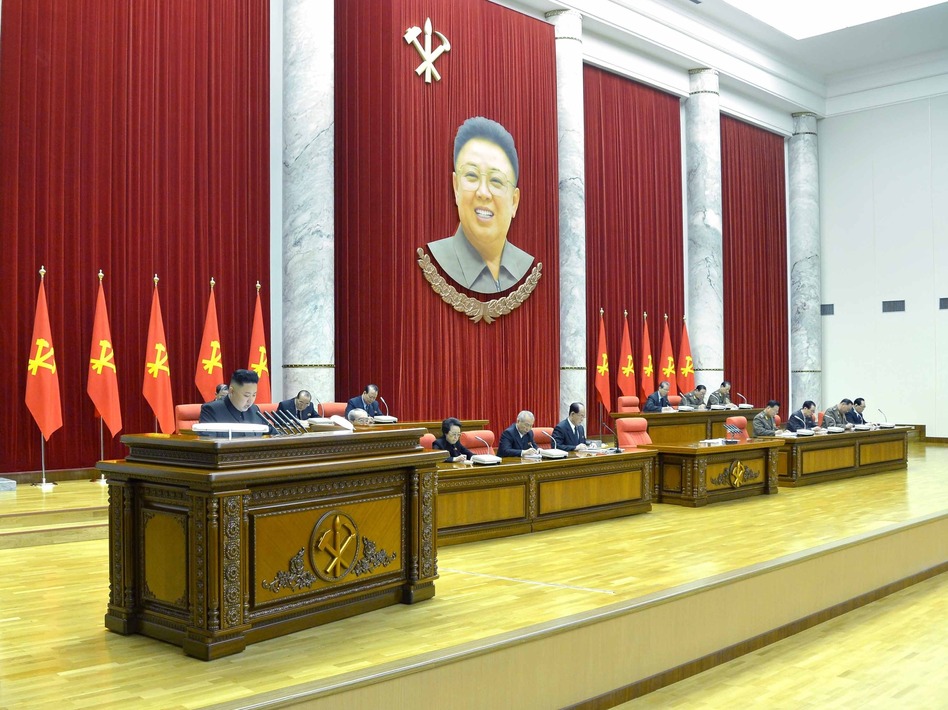
North Korea’s KCNA news agency released this photo Monday, saying it shows leader Kim Jong Un (at left) speaking during a plenary meeting of the Central Committee of the DPRK in Pyongyang. Hanging above is the image of his father, former leader Kim Jong Il, who died in 2011.
Xinhua /Landov
A vow Tuesday from North Korea that it will restart a nuclear reactor that eventually could make about one bomb’s worth of plutonium a year further escalates tensions that were already high due to that nation’s almost daily threats, NPR’s Louisa Lim tells our Newscast Desk.
According to Louisa, who filed her report from Beijing:
“In a statement, North Korea said work to restart all facilities at the Yongbyon nuclear plant will begin without delay. It said it needs to resolve an acute electricity shortage, as well as bolster what it called its nuclear armed force.
“Analysts say that Pyongyang now sees its nuclear arms program as essential for national security — and non-negotiable. It’s not clear how long it will take to restart the nuclear plant. In 2008, its cooling tower was blown up as part of disarmament efforts.”
The Associated Press adds that the plutonium reactor “was shut down in 2007 as part of international nuclear disarmament talks that have since stalled. The declaration of a resumption of plutonium production — the most common fuel in nuclear weapons — and other facilities at the main Yongbyon nuclear complex will boost fears in Washington and among its allies about North Korea’s timetable for building a nuclear-tipped missile that can reach the United States, technology it is not currently believed to have.”
Monday, as we reported, the Pentagon told reporters that two F-22 Raptor fighter jets have been sent to South Korea to take part in U.S.-South Korean military drills. That followed last week’s news that nuclear-capable B-2 stealth bombers had conducted a training flight to the Korean Peninsula.
The North, and its young leader Kim Jong Un, have been blaming the U.S.-South Korean military drills (which those nations have conducted many times in recent decades) as they have moved to cut hotlines to the South and annul the 1953 armistice that ended open warfare on the peninsula.
According to the Los Angeles Times, the announcement about restarting the Yongbyon reactor came “after a rare plenary meeting of the central committee of the ruling Worker’s Party, which set a new strategic direction for the nation. At the meeting, Kim described the nuclear weapons program as the ‘nation’s life’and ‘treasure,’ which ‘can never be abandoned.’ ”
South Korea’s new president, Park Geun-hye, said Tuesday that the security situation is “grave,” Yonhap News reports. The news agency adds, though, that she believes “discouraging North Korea from provocations through strong diplomatic and military deterrence is just as important as punishing the communist nation after provocations.
Read original article
North Korea’s Latest Threat: It Will Restart Nuclear Reactor